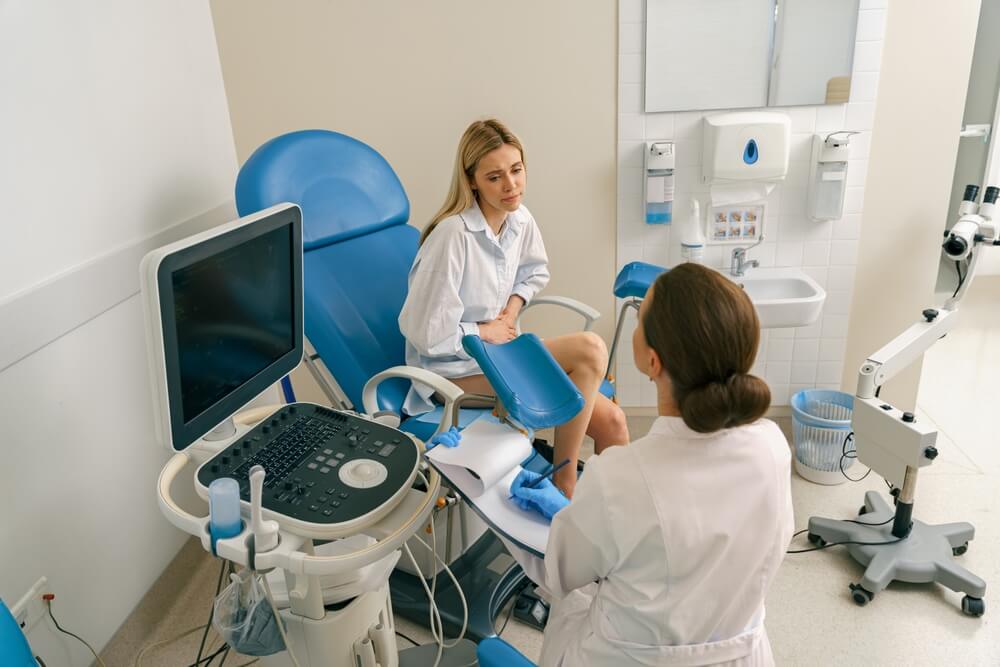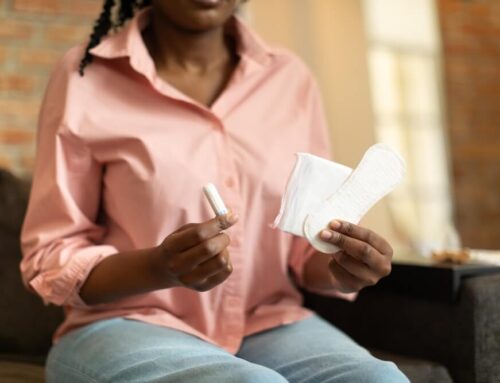What is Dyspareunia?
Dyspareunia, or painful intercourse, is recurring or persistent pain before, during, or even after having sex. The pain mostly concentrates on the genital region and can be extremely severe in the region of the vulva (either the labia or the opening of the vagina). In other cases, women feel discomfort internally, in their lower abdomen, uterus, or cervix.
The Fern F. Taichenchoy-Bent MD LLC team understands that this condition can have a massive emotional impact and adverse psychological effects on women experiencing it. Apart from the physical pain, the loss of intimacy has the potential to strain relationships and lead to unwanted stress, anxiety, and other mental problems.
On a more positive note, our female gynecology specialists in Margate, Flordia, can recommend adequate treatment based on patient symptoms and help diagnose the underlying cause of the pain.
More About Painful Intercourse

Pain during sex is typically more common in women but may also affect men. The pain is often a result of medical conditions and physical factors, but it can also stem from psychological problems.
Dyspareunia is among the most common gynecological issues women face, affecting around 10 to 20% of US women at some point during their lifetime.
Types of Dyspareunia
The pain’s location is the primary factor that can help experts determine the type of dyspareunia patients are dealing with.
The pain may either be:
- Entry: This is often called superficial or intraorbital dyspareunia. The pain can be felt at the vaginal entrance during initial penetration in these cases. Usually, the pain is due to infection, injury, or a lack of lubrication.
- Deep: Referred to as collision dyspareunia, the pain happens during deep penetration, affecting the lower abdomen and cervix. Usually, it is either caused by a prior surgery or a medical condition.
Dyspareunia may also be categorized as primary, secondary, situational, or complete.
- Primary pain refers to experiencing pain ever since becoming sexually active.
- Secondary will develop after having painless sex for some time.
- Complete means that the pain is present each time you have intercourse.
- Situational pian only happens sporadically.
Causes of Painful Intercourse
Insufficient vaginal lubrication often leads to discomfort during sexual intercourse. However, you can alleviate the pain in such instances by promoting relaxation, extending foreplay, or incorporating a sexual lubricant.
In other cases, pain during sex may be the result of one of the following medical problems:
- Vaginismus: Prior trauma to the vagina or the fear of being hurt causes a spasm in the vaginal muscles.
- Vaginal infections.
- Vaginal atrophy: When the vaginal lining loses its thickness and moisture, becoming dry, inflamed, and thin.
- Cervical and uterine problems
- Sexually transmitted diseases, including herpes, genital warts, and more.
- Pelvic inflammatory disease.
- Endometriosis.
- Having sex too soon after giving birth.
- The presence of ovarian cysts and other ovarian problems.
- Skin disorders that affect the genitalia.
- Prior vaginal or vulvar injury.
- Vulvodynia: Chronoic vulvar pain.
- Ectopic pregnancy: When the fertilized egg starts developing outside the uterus.
- Psychological problems: Depression, anxiety, low self-esteem, etc.
Pain During Sex: Most Common Symptoms
When women experience pain during intercourse, they may feel:
- Deep pain while thrusting.
- Sharp pain at entry during penetration.
- Pelvic cramping
- Burning pains
- Aching or throbbing after sex
- Spasms and muscle tightness.
Diagnosing Dyspareunia
A comprehensive health history and physical examination your healthcare provider conducts can help identify the root cause of discomfort during sexual intercourse. This physical examination may encompass an evaluation of your pelvis, abdomen, vagina, and uterus.
To determine the pain’s source and to see whether any medical conditions are causing the problem, providers may perform the following tests:
- Physical examinations, such as a rectal exam, pelvic exam, and pap test, are performed.
- Ultrasounds like a transvaginal ultrasound to better view the entire reproductive system.
- When all other tests are inconclusive, doctors may opt for laparoscopy.
Treating Painful Intercourse
Some treatments for sexual discomfort may not require medical intervention. For example, if you’re experiencing painful intercourse after childbirth, you should wait at least six weeks following delivery before attempting sexual activity. During this period, it’s essential to practice gentleness and patience. Experiments with water-based lubricants are recommended in cases marked by vaginal dryness or insufficient lubrication.
However, certain sexual pain conditions may demand prescription medications if vaginal dryness results from menopause; consulting your healthcare provider about using estrogen creams, tablets, rings, or other prescription medications is advisable. Additionally, various underlying causes of painful intercourse may necessitate the use of prescription medications.
For individuals grappling with sexual discomfort that lacks an apparent medical cause, sexual therapy could be a valuable option. This form of therapy may be essential for those needing to address feelings of guilt, inner conflicts related to sex, or unresolved emotions stemming from past abuse experiences.
Sometimes, water-based lubricants on the labia, vulva, and vagina may help with dryness. Doctors also recommend avoiding the use of vaginal perfumes, scented sanitary pads, toilet paper, and bubble baths for women who experience painful intercourse.
On the other hand, there are also medications available that can help with painful sex. When painful intercourse is attributed to vaginal dryness resulting from low estrogen levels, one potential remedy involves the application of topical estrogen to the vaginal area. The Food and Drug Administration (FDA) has sanctioned the use of a medication named ospemifene for addressing dyspareunia associated with menopause, and it is available in oral form. Furthermore, healthcare providers may prescribe specific medications to alleviate pain stemming from infections or underlying medical issues.
Also, experts will often advise women to try the following tips to alleviate their symptoms of dyspareunia:
- Using silicone- or water-based lubricant to combat vaginal dryness.
- Using OTC pain relievers before intercourse.
- Applying ice packs to the vulvar region after sex.
- Trying out new positions and sexual activities that don’t cause any pain.
- De-stressing and relaxing before sex.
The recovery duration for dyspareunia is contingent on the root cause of sexual pain. The encouraging aspect is that you can attain relief and recuperate from painful intercourse. Whether it entails medication, counseling, surgery, or the utilization of lubricants, your healthcare provider can identify an appropriate treatment to enhance or alleviate dyspareunia.
Unfortunately, there is little women can do to reduce their risk of dyspareunia. Still, having protected, safe sex and maintaining good genital hygiene can reduce a large portion of the risks associated with painful intercourse.
Lastly, if you have dyspareunia, don’t hesitate to call your doctor if the pain is worsening or if you are experiencing new symptoms, such as the formation of genital lesions, bleeding, unusual vaginal discharge, irregular periods, or involuntary vaginal muscle contractions. If the pain has no direct underlying medical causes, women should ask for help from certified therapists or sex counselors.
You Can Always Count on Expert Help

Experiencing pain during sexual intercourse can result in physical discomfort, emotional strain, and reduced intimacy. If you’re enduring painful sex, reaching out to your healthcare provider is crucial. There’s no need to feel self-conscious when discussing your symptoms, as addressing the issue can significantly enhance your sexual well-being, intimacy, and self-assurance.
That being said, don’t hesitate to contact us today with your concerns and questions. Our team is here to help.










